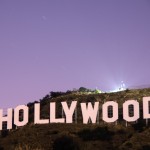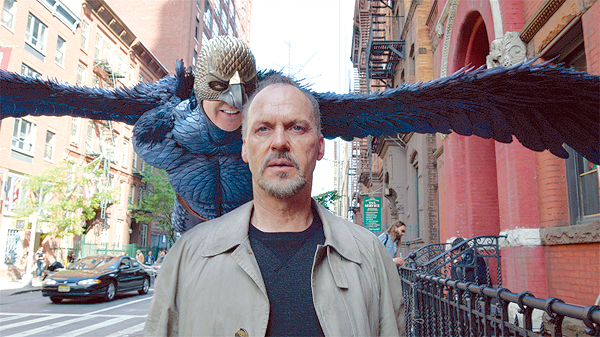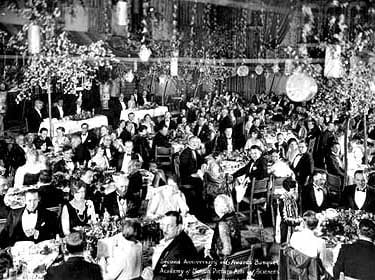Richard Linklater’s Boyhood is an utterly unique creation. Linklater filmed it over the course of twelve years, watching his young actors mature inside the characters they play. The older actors change too, though of course not as dramatically. Boyhood is less of a coherent narrative than a collection of someone’s memories. It is audacious and often moving. What it isn’t, in my humble estimation, is great.
 It occurs to me that older viewers will probably feel the impact of Boyhood more keenly than the young. As I said above, the movie is steeped in memory, which tends to create a more emotional experience in those who are most dependent on it. I was never particularly emotional during Boyhood. The closest I got was in the first half, watching an introverted, inexperienced young boy navigate terrain neither familiar nor desired. Boyhood reminded me that most of us (by which I mean, I) would be content to never grow up, so long as we only ever knew childhood.
It occurs to me that older viewers will probably feel the impact of Boyhood more keenly than the young. As I said above, the movie is steeped in memory, which tends to create a more emotional experience in those who are most dependent on it. I was never particularly emotional during Boyhood. The closest I got was in the first half, watching an introverted, inexperienced young boy navigate terrain neither familiar nor desired. Boyhood reminded me that most of us (by which I mean, I) would be content to never grow up, so long as we only ever knew childhood.
But we do grow up, and more than anything that is the point of Boyhood. One of the most important aspects of a film like Boyhood is the editing. Linklater and his editor Sandra Adair (who edited Linklater’s Before Sunrise trilogy) create a seamless consciousness of life, as we watch young Mason (Ellar Coltrane) age from five to seventeen, a youth demarcated by all the familiar milestones. Recounting the plot….well, what’s the use? We watch a child grow into a man. Describing that journey in words would betray the magic of watching it unfold. Suffice to say that the constants in Mason’s life are his divorced parents (Ethan Hawke and Patricia Arquette, both very good) and his sister Samantha. The faces around Mason change just as much as his does, which of course is true of all of us.
In all writing, the most authentic dialogue is the kind that sounds as if someone wrote it while eavesdropping. That’s how so much of Boyhood sounds. There’s running conversation between Mason and his biological father during a camping trip that has an incredible realism, from the inevitable stiff pauses between father and son to the way Mason talks with such speed and expertise about “Star Wars.” It’s the kind of stuff you wouldn’t write into another film because it sounds undramatic. It sounds that way because it is, and it is that way because that’s how Linklater wants us to see the people in his film: Not as heroes or geniuses or comics, just people.
Is this a great film? I said above it’s not, and since saying that I have only heaped praise on it. That’s because taken as individual elements of filmmaking, Boyhood is a magnificent triumph. There simply isn’t another film that sounds or looks like it. However, therein lies the final flaw: The final third of the movie feels like Linklater wasn’t quite sure what he had created. There’s a sudden lack of presence when we get into the throes of Mason’s adolescence from which Boyhood never recovers. For most of the film we are seeing and hearing and knowing Mason; in these sections we merely watch him.
It’s important to remember that, despite everything about it, Boyhood is not a documentary. This is a scripted film, a writer’s creation. For me, watching Mason’s last years of high school betrayed a sense that his creator had lost interest in him. Here’s an example: As Mason grows physically, mentally and sexually, he seems to shrink verbally. Teenage boys are infamously inarticulate, so Mason’s “Alright, whatever” meme feels authentic. Only problem: It’s not. This isn’t a documentary, it’s a writer’s reflection on life. It’s possible that Linklater is making a connection between divorce and existential apathy (one evidence for this is the way Mason opens up to his biological father about his ex-girlfriend, a wonderful scene late in the movie). If so, kudos to him. I just don’t think most audiences will perceive this. It’s a terribly frustrating thing to spend nearly an hour without one truly self-examining or otherwise meaningful line from our Odysseus.
That brings me to the other impediment to greatness for Boyhood: Its ending. I could be completely misinterpreting the film, but after the final scene (which even in its flaws tenderly brings its subject back to a place of his youth), I was irritated. Linklater has a character give a brief soliloquy on carpe diem that feels like it violates the comedian’s #1 rule: If you have to explain the joke, you’ve lost. It’s a fumbling effort for profundity that sounds cheap and disconnected from the film as an experiential whole. Again, perhaps those who can more clearly see themselves in Mason will come away differently.
So eager was I to be powerfully affected by Boyhood that the awareness I wasn’t was incredibly disappointing. My admiration for what Linklater has done here is infinite. He surely should be in contention for an Oscar or two come winter. But as a sweet meditation of a youth remembered, Boyhood lacks the resonance I desperately hoped it would have. It just keeps us at too long of an arm’s distance from its soul.
[A word about the film’s “R” rating. The MPAA gave “Boyhood” this rating for “language, including sexual references, and teen drug and alcohol use.” In my opinion this is a movie that teens can benefit from in dialogue especially with parents.]
IFC Productions presents a film written and directed by Richard Linklater. 165 min. Rated R.















